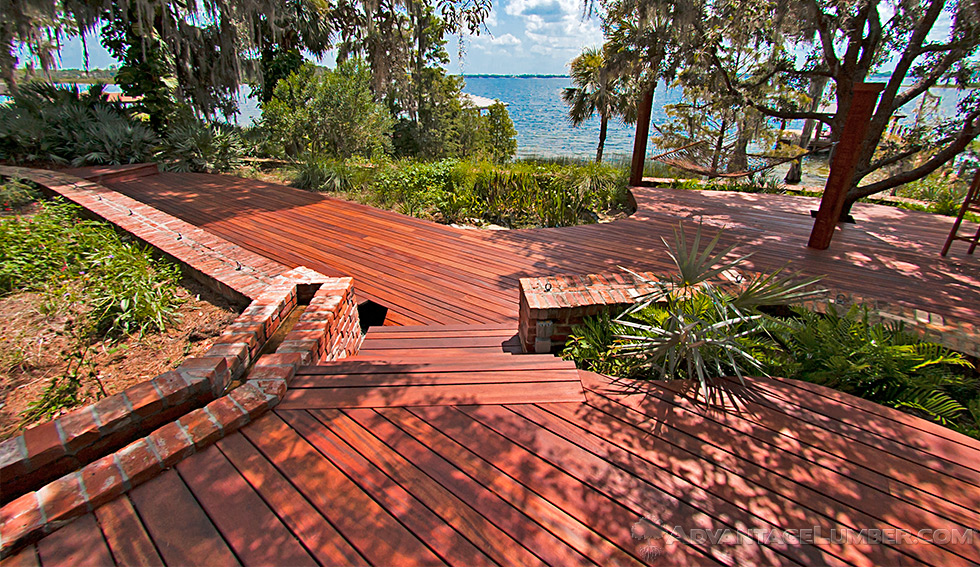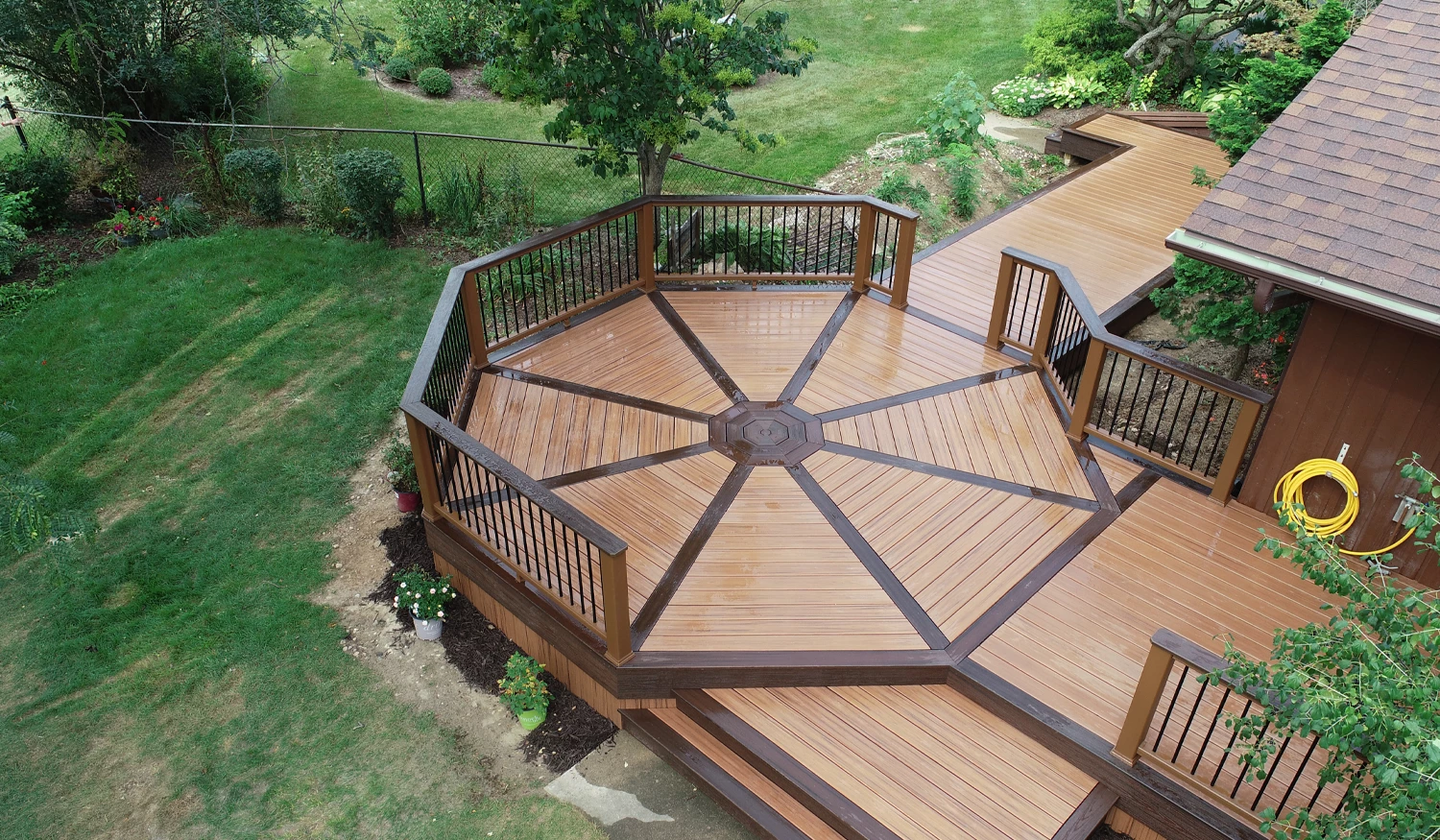How to Select the Right Materials for Your Deck Installation Project
Choosing the proper materials for your deck installment job can appear challenging. The trick is to balance your spending plan, style preferences, and way of life needs to produce a deck that will enhance your exterior room for years to come.
Understanding the Various Types of Deck Products
When getting started on a deck setup job, the choice of products comes to be a critical decision. Composite materials, on the various other hand, are a mix of wood and plastic, offering sturdiness and resistance to weather aspects. By understanding these distinctions, homeowners can make a much more informed decision on the most suitable deck material for their details demands.
Examining the Durability and Upkeep Needs of Deck Products
Evaluating the longevity and maintenance demands of deck materials is a critical step in deck installment. Sturdiness entails the material's ability to hold up against rough weather, damage, and its longevity. Cedar and redwood are naturally resistant to rot and pests, making them long lasting choices. On the other hand, pressure-treated timber, while durable, may require even more maintenance due to its susceptibility to fracturing and contorting.
Understanding maintenance requirements is just as important. Some products need normal sealing or tarnishing to maintain their appearance and stand up to moisture damage, while others, like composite decking, demand much less maintenance. By examining these factors, one can choose one of the most suitable decking material, guaranteeing an equilibrium in between sturdiness, maintenance needs, and aesthetic allure.
Cost Evaluation: Comparing Timber and Composite Decking
Although expense might originally seem like a secondary worry, it is a significant aspect when comparing wood and composite decking. On the other hand, composite decking, while more expensive initially, requires much less maintenance, possibly minimizing lasting costs. Possible deck owners need to consider their spending plan and readiness to preserve their decks when deciding between timber and composite decking.
Aesthetic Appeals and Design Versatility of Decking Products
Natural timber outdoor decking provides a traditional, ageless appearance, while composite materials use a wide range of shades and appearances to match varied preferences and designs. Composite products, while less versatile in design, are still adaptable enough for a lot of deck layouts. These aspects, consequently, are important factors in the option of outdoor decking product.
Environmental Influence of Decking Products
When selecting outdoor decking products, one should consider not only looks and longevity, yet additionally the environmental impact. It is necessary to assess the sustainability of materials and explore recycled decking choices. Understanding the possible effect on neighborhood communities will make certain an extra ecologically responsible choice.
Examining Product Sustainability
In the world of deck building, assessing product sustainability is an important action. Composite outdoor decking materials often incorporate wood and plastic, minimizing the need for brand-new hardwood however increasing dependence on fossil fuels - deck installation austin tx. Thus, the option of outdoor decking materials should stabilize performance, appearances, expense, and sustainability to make certain a responsible and resilient installation.
Recycled Outdoor Decking Alternatives

Compound decking is specifically popular due to its resilience and ease of upkeep. It's resistant to rot, bugs, and fading, making it a lasting choice. Recycled plastic outdoor decking, on the various other hand, is highly resistant and needs minimal upkeep. While these products may bring a greater initial cost, their long life and reduced environmental influence make them a smart financial investment for the eco-conscious property owner.

Influence on Local Ecosystems
While the advantages of utilizing recycled materials for decking can not be overemphasized, it's similarly vital to think about the more comprehensive environmental implications of these right here choices. The extraction, processing, and transport of products can profoundly affect local ecosystems. Logging for wood decking adds to habitat loss and climate modification. Also the production of composite products can release unsafe discharges. Conversely, making use of recycled or sustainably sourced materials can assist minimize these results. Considering the life expectancy of products can reduce environmental influence; longer-lasting alternatives call for less frequent replacement, hence saving sources. Correct disposal of old decking is important to minimizing land fill waste. Basically, an eco-conscious deck job needs cautious product choice, lasting sourcing, and responsible disposal.
Making Your Final Decision: Tips for Selecting the most effective Deck Materials
As the post shifts right into the subtopic of "Making Your Decision: Tips for Choosing the Best Deck Products", it is important to recognize the range of deck materials readily available. Striking a balance between longevity and aesthetics is necessary in this selection process. The complying with conversation will certainly guide readers in making an enlightened selection based upon these essential considerations.
Understanding Various Deck Materials
The task of picking the right products for your deck installation can seem intimidating due to the substantial range of alternatives offered. Plastic or PVC decks are even extra long lasting and call for much less upkeep than composite products, but they can look much less all-natural. Light weight aluminum decks are strong, lightweight, and resistant to rot, yet they are additionally the most costly choice.
Longevity vs. Aesthetics Balance
Balancing toughness with appearances can Look At This be a difficulty when choosing deck products. The choice typically steams down to personal preferences and the deck's meant use. High-traffic locations might necessitate long lasting products like composite outdoor decking, which stands up to wear and tear yet may do not have the natural charm of wood. On the various other hand, timber supplies a classic allure and warmth that artificial materials battle to duplicate. It calls for much more upkeep and may not last as long. Therefore, house owners require to strike a balance, taking into consideration both the deck's useful demands and their aesthetic choices. By doing so, they can ensure their deck remains a functional and attractive outdoor area for several years ahead.
Conclusion
In final thought, choosing the ideal materials for your deck installment project needs cautious consideration of elements such as longevity, maintenance, expense, looks, and ecological effect. Whether you choose typical wood or composite materials, your option needs to look at this now align with your budget, layout preferences, and lifestyle. Eventually, the most effective outdoor decking product is one that improves your outdoor room and offers enjoyment for several years to find.